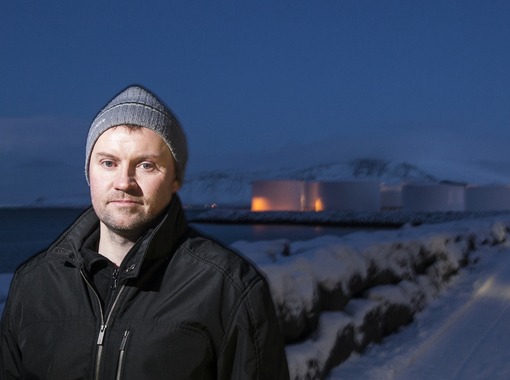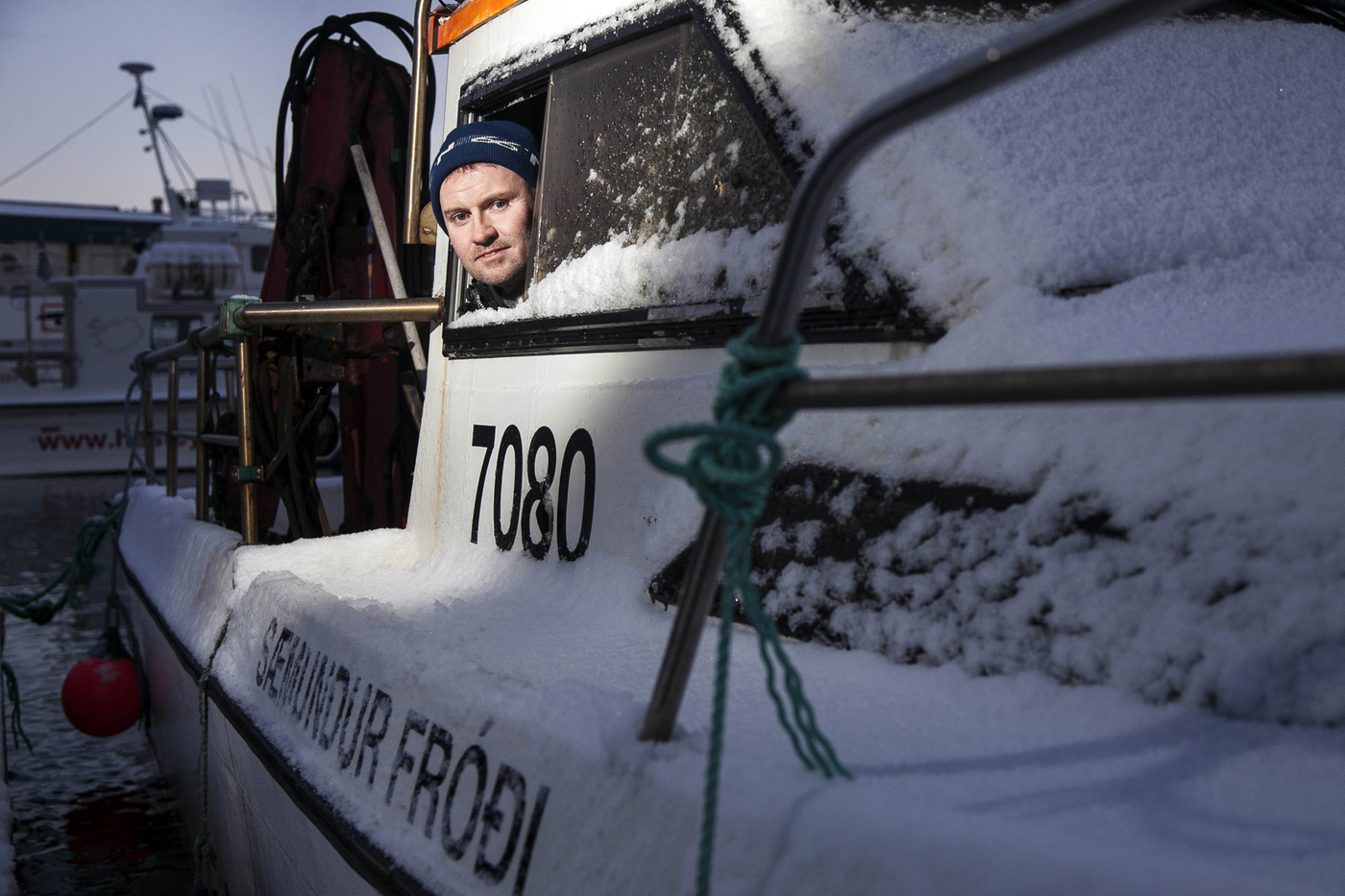“The results of this study are alarming, and they reveal varied and serious pollution pressures in Icelandic harbours; this is apparent in the chemical composition of deposits and fauna and in the effects chemicals are having on organisms.”
So says Halldór Pálmar Halldórsson, head of the University of Iceland Research Centre in Suðurnes. The University has many such centres around the country, and they work closely with the communities where they are operated. Halldór has recently led a study on evaluating pollution pressures in Icelandic harbours using a variety of methods and analysis of organisms and deposits, but harbours are one of the main sources of marine pollution in Iceland according to Halldór. When asked about the impact on organisms in harbours he is quick to answer.
“There is cellular damage, effects on genetic material and the physiology of blue mussels, and hormonal damage on dog whelks caused by TBT. This chemical was used to paint ship bottoms to prevent organic growth. The impact of TBT is still apparent today even though it has been banned in Iceland since 1990. It binds to minute organic compounds and is gathered in deposits so it keeps escaping into the biosphere for decades. The chemical causes male reproductive organs to grow in females and this impact is called imposex.”
Halldór Pálmar says that even though varied pollution pressure from various chemicals is to be expected in harbours and adjacent areas, this has not been much researched, and this fact is the inspiration for the study and the reason he chose this subject.
Got to know the problem as a seaman
Halldór Pálmar’s interest in marine ecology was sparked when he worked as a seaman, and he did so for a number of years before starting his studies at the University. He saw with his own eyes the level of pollution in Icelandic harbours. In fact, his sailing career is not really over, since he is the only captain currently working for the university, as the ship Sæmundur Fróði is run by the research centre, and it is utilised for research purposes. The location of the centre in Sandgerði connects to a community deeply involved in and dependent on the life in the sea.
The important work carried out by Halldór Pálmar in recent years with his team in Sandgerði has provided opportunities to assess the utility of various biological metrics and biomarkers in pollution research in the arctic, and to “explore whether the biosphere is under pressure from pollutants like heavy metals and chemicals from paint on ship bottoms,” says Halldór Pálmar.
“Research on pollutants and their impact has great societal value because such knowledge is the basis for reacting to problems, for example by reducing the release of undesirable chemicals into the environment. Increased knowledge in this are promotes more responsible behaviour towards nature, a healthier environment and protecting the ocean in as sustainable a way as possible by preventing harm to the biosphere,” says Halldór Pálmar.

Research with significant social value
Halldór Pálmar is not only a prolific scientist, but he is also active in disseminating knowledge to the public in a variety of ways. He has provided numerous answers to questions on the University’s Web of Science. He has also led walks in the series Hiking trips with Science Tips (Með fróðleik í fararnesti), a project that was recently awarded as the best science dissemination project by Rannís. This project has been ongoing in collaboration with the Iceland Touring Association since 2011.
Halldór Pálmar’s interest is primarily in the field of the ecology of poison, but through research in that field it is possible to tell whether and how pollution affects the biosphere. “Such research, just like research generally, is paramount when it comes to making informed decision to the benefit of nature and future generations,” the scientist comments.
The importance of researching humanity’s impact on the living environment cannot be stressed enough, and the ocean around the island is of special concern for Icelanders, since its resources are vital to us. A study such as this one can thus be an important factor in public policy concerning the conservation of coastal areas. Furthermore, the study has a direct link to the SDGs , where the ecology of the oceans is specifically considered and special goals set to protect the seas of the world. The SDGs state that no later than 2025 marine pollution should be significantly reduced, and the seas protected from harmful operations on land. This study also fits well with the University’s strategy, HÍ26, where the University’s contributions are stated to be vital to Iceland’s living up to the SDGs.
“Research on pollutants and their impact has great societal value because such knowledge is the basis for reacting to problems, for example by reducing the release of undesirable chemicals into the environment. Increased knowledge in this are promotes more responsible behaviour towards nature, a healthier environment and protecting the ocean in as sustainable a way as possible by preventing harm to the biosphere.”




